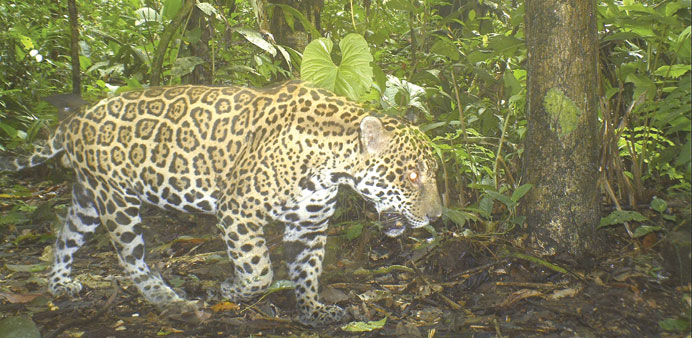|
|
The Yasuni-ITT Initiative, to conserve “the biologically richest place on Earth” by foregoing the extraction of 846mn barrels of oil and avoiding the emission of 1.2bn metric tonnes of carbon dioxide, is expecting Qatar’s support.
“I want Qatar to be the first country from the Gulf to support the $3.6bn Trust Fund established by Ecuador in partnership with the United Nations Development Programme,” Yasuni-ITT Initiative’s secretary of state Ivonne A-Baki told Gulf Times in Quito.
The Lebanon-born artist, politician and activist who describes herself as a “very close friend” of Qatar, pins her hopes on the fact that Qatar is “doing a lot for the reduction of CO2 emissions and alternative energy”.
“The Yasuni Ishpingo Tambococha Tiputini (ITT) Initiative proposes a new model of development by contributing to the protection of life, peace and sustainable development,” observed UNDP’s programme specialist Gabriel Jaramillo.
A Unesco world Biosphere Reserve since 1989, the million-hectare Yasuni National Park in eastern Ecuador is one of the most intact sections remaining in the Amazon Basin and home to two of the last indigenous communities living in voluntary isolation, he explained.
“Yasuni is a very special place,” stated conservation biologist Prof David Romo, also a co-director of the Tiputini Biodiversity Station run by the Universidad San Francisco de Quito on 650 hectare of pristine lowland rainforest on the edge of Yasuni National Park.
Because of its unique location at the intersection of the Amazon, the Andean Mountains, and the Equator and its function as a biological refuge during the last ice age, Yasuni is home to 2,704 species of vascular plants, 596 species of birds, 382 species of freshwater fish, 151 species of
amphibians, and 121 species of reptiles.
“The vascular plants species in Yasuni are more than twice that of Europe or the US and Canada combined while the number of bird species surpasses the diversity of the Continental US,” Prof Romo said.
“The Yasuni-ITT Initiative aims to avoid extraction of 20% of the oil reserves of Ecuador which is committed to achieve up to 95% of the energy matrix from fully renewable sources by 2016, up from the current 60 to 65%,” maintained Daniel V Ortega Pacheco, an adviser on environment and sustainable development to the foreign minister.
Prof Carlos Larrea Maldonado, a researcher in social and global area studies at Universidad Andina Simon Bolivar, Ecuador, and a key player in the technical design of the Yasuni-ITT Initiative, pointed out that the contributions to the Trust Fund would be invested only on renewable energy projects and the returns from them on sustainable development programmes.
Asked about the present status of the Trust Fund, A-Baki told Gulf Times that it stood at $330mn, including the pledges. “We are looking at mobilising $3.6bn in the next 13 years. A campaign to raise money through the social networks will begin soon,” she said.
The first project funded by the Yasuni-ITT Initiative, a $8mn medium size hydro project in the south of Ecuador, is expected to be commissioned by the end of this year, revealed Jaramillo.
The Trust Fund’s value of $3.6bn is equivalent to 50% of the value of the proven oil reserves and the economic value of the 407mn metric tonnes of avoided CO2 emissions. The total avoided CO2 emissions are estimated at 1.2bn metric tonnes by including 800mn metric tonnes from avoided deforestation of the ITT block.
“Hence, the Yasuni-ITT Initiative also serves as a key component in mitigating global warming, which if unchecked could lead to an acute environmental crisis,” added Prof Maldonado.

